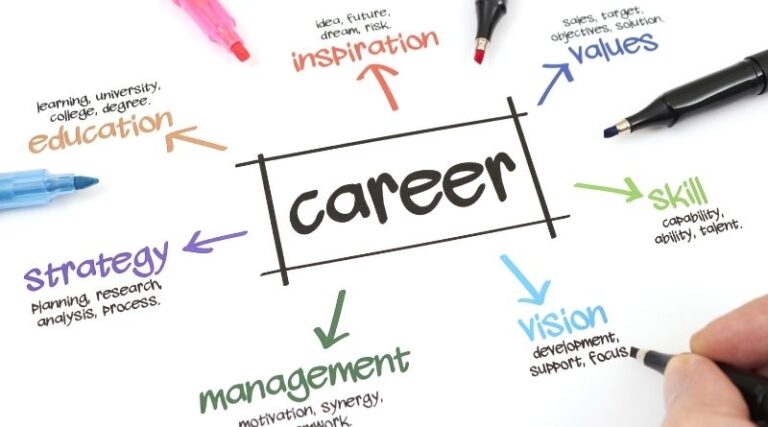Graduation is completed after years of drafting reports, conducting research, and preparing educational presentations. However, for many individuals who have devoted their lives to various courses, areas, and professions, this is a highly stressful and unpredictable period. Many people may not have their 1st job interview until after graduating, making it extremely difficult to devote to a single career choice for the conceivable future.
As a result, while considering “what you must do after graduation?” career planning ought to be a top focus. Although some students prefer to do their own business or work as freelancers, others may prefer to work for a company, volunteer, or travel around the world. But how would you adjust to the new reality as a graduate and plan your career advancement years ahead of time? What are the advantages, or how can you achieve your objectives even while finding time for oneself?
Students’ Career Advice
1. Make a long-term aim for yourself.
Sadly, several students focus on day-to-day life management rather than long-term enjoyment, which can result in poor job decisions down the track. Simply ask yourselves what you want out of life to get a good start on your career counselling. If you wish to become an app developer, start by understanding all skills required to be the ones such as resources, graphic designer, marketing team etc. For example an instagram developer has a full plan of instagram marketing strategies, a technical team to deal with all issues that users encounter , a creative team to bring out new ideas, an IT team to look for all matters related to functionality etc. Likewise identify your long term goal and work towards it.
2. Examine your recreational activities and hobbies.
Your future professional route may already be concealed anywhere within your activities, regardless of the type of university life you’ve had. Hobbies and recreational hobbies can readily be turned into full-time careers, professional advancement chances, and prospective entrepreneurial opportunities.
Consider becoming a bookseller or bookstore owner if you’ve been a part of a university reading club or literary group. Examine your campus activities and consider how much you like or dislike each one; you might be shocked by what you find, and you decide on your future.
3. Create a concept map of your preferences.
There’s just so much you can do while you’re still studying as a student in terms of career guidance. As a result, mind mapping might assist you in determining what you enjoy and dislike. A piece of paper, some few coloured pens, as well as some free time are everything you want to make a mind map.
Start by writing the things, relations or resources you are grateful for and their counterparts by dividing your loves and hates into left and right. Put it in the positive column if you enjoy spending time in public locations, accompanied by others, and discussing significant global issues. Put it in the negative if you despise going to work every day. This form of reflection on self is critical for determining your future job path and identifying personal growth chances.
4. Make Contact with Student Friends
Why not question your friends and associates about their goals if you’re a college grad or about to complete your formal education? People whose plans align to yours are likely to want to talk more about the future with you, which might lead to partnership chances.
5. Seek advice from a teacher or a mentor.
Most students are unaware, until it gets too late, that professors were once students — some of them only a few years ago. College professors, job counsellors, and mentors (for example your parents or celebrities, sports personalities etc.) can all help you.
6. Think Outside the Box
At first, it may appear pointless to choose a career that does not concentrate around the academic course you recently earned.
Given the multi-industry character of many academic courses, however, this makes sense.
If you have a degree in business, you could establish your own company or work as an advisor, for example. Similarly, if you have a graphic designing degree, you can work as an individual artist or freelancer in a large company’s marketing team and prepare posters on how to create an online course or how to stop procrastination. Academic degrees are there to assist us in determining our future professional paths, not to constrain us. Extend your job advancement possibilities beyond your field of specialization; you may find some inovative options and chances.
